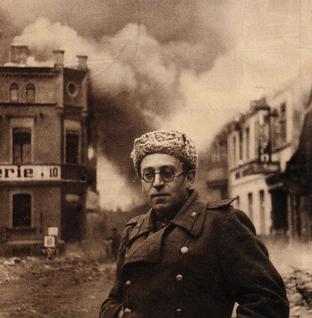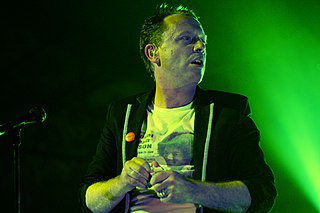A Quote by Vasily Grossman
And in this silence of the dumb and these speeches of the blind, in this medly of people bound together by the same grief, terror and hope, in this hatred and lack of understanding between men who spoke the same tongue, you could see much of the tragedy of the twentieth century.
Related Quotes
Let us turn our thoughts today to Martin Luther King and recognize that there are ties between us, all men and women living on the Earth. Ties of hope and love, sister and brotherhood, that we are bound together in our desire to see the world become a place in which our children can grow free and strong. We are bound together by the task that stands before us and the road that lies ahead. We are bound and we are bound.
In ability choice education finance majorities people understanding voting A lot of voters always cast their ballot for the candidate who seems to them to be one of the people. That means he must have the same superstitions, the same unbalanced prejudices, and the same lack of understanding of public finances that are characteristic of the majority. A better choice would be a candidate who has a closer understanding and a better education than the majority. Too much voting is based on affability rather than on ability.
Blind hope. Blind hope is all we have. There's a Greek tragedy called Prometheus Bound; Prometheus is the [titan] that gave humans fire. He's chained to a rock and bemoaning his fate and saying, "I gave you everything. By giving you fire, I gave you blind hope. By giving you a little light that kept you warm at night, I let you believe that this was all going to be okay." For me, that's what art has been. Music and books, it's an act of hope to make them, and it's an act of hope to listen to them. That hope will be dashed, you will say goodbye.
When Theodore Roosevelt was in the White House, he confessed that if he could be right 75 percent of the time, he would reach the highest measure of his expectation. . . . If that was the highest rating that one of the most distinguished men of the twentieth century could hope to obtain, what about you and me?
It has been said that the three great develpments in twentieth century science are relativity, quantum mechanics, and chaos. That strikes me the same as saying that the three great developments in twentith century engineering are the airplane, the computer, and the pop-top aluminum can. Chaos and fractals are not even twentieth century ideas: chaos was first observed by Poincare and fractals were familiar to Cantor a century ago, although neither man had the computer at his disposal to show the rest of the world the beauty he was seeing.
Modernism really started with people getting infatuated with the idea of "it's the twentieth century, is this suitable for the twentieth century." This happened before the First World War and it wasn't just the soldiers. You can see it happening if you read the Bloomsbury biographies. It was a reaction to a great extent against Victorianism. There was so much that was repressive and stuffy. Victorian buildings were associated with it, and they were regarded as very ugly. Even when they weren't ugly, people made them ugly. They were painted hideously.






































